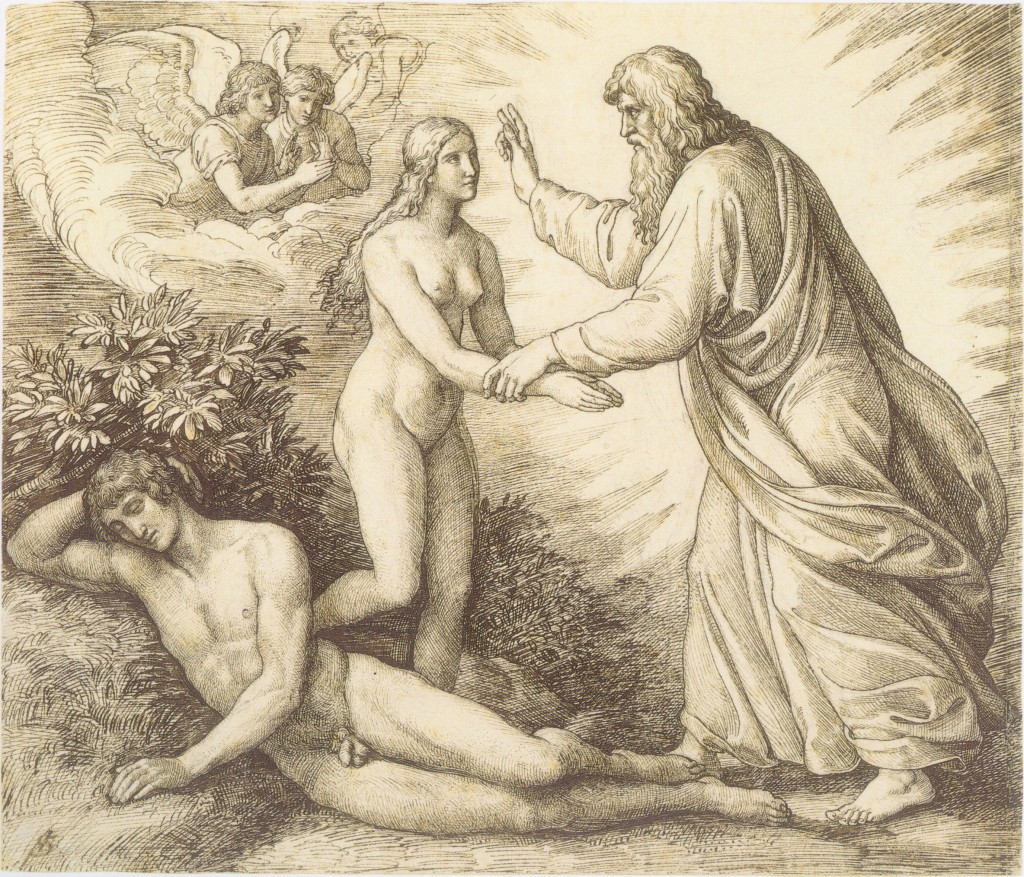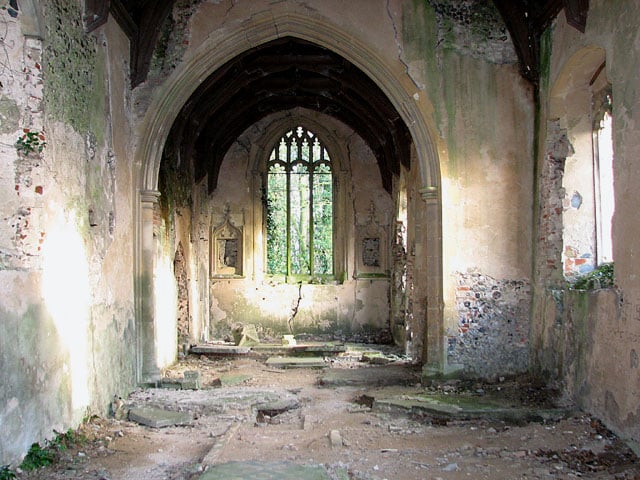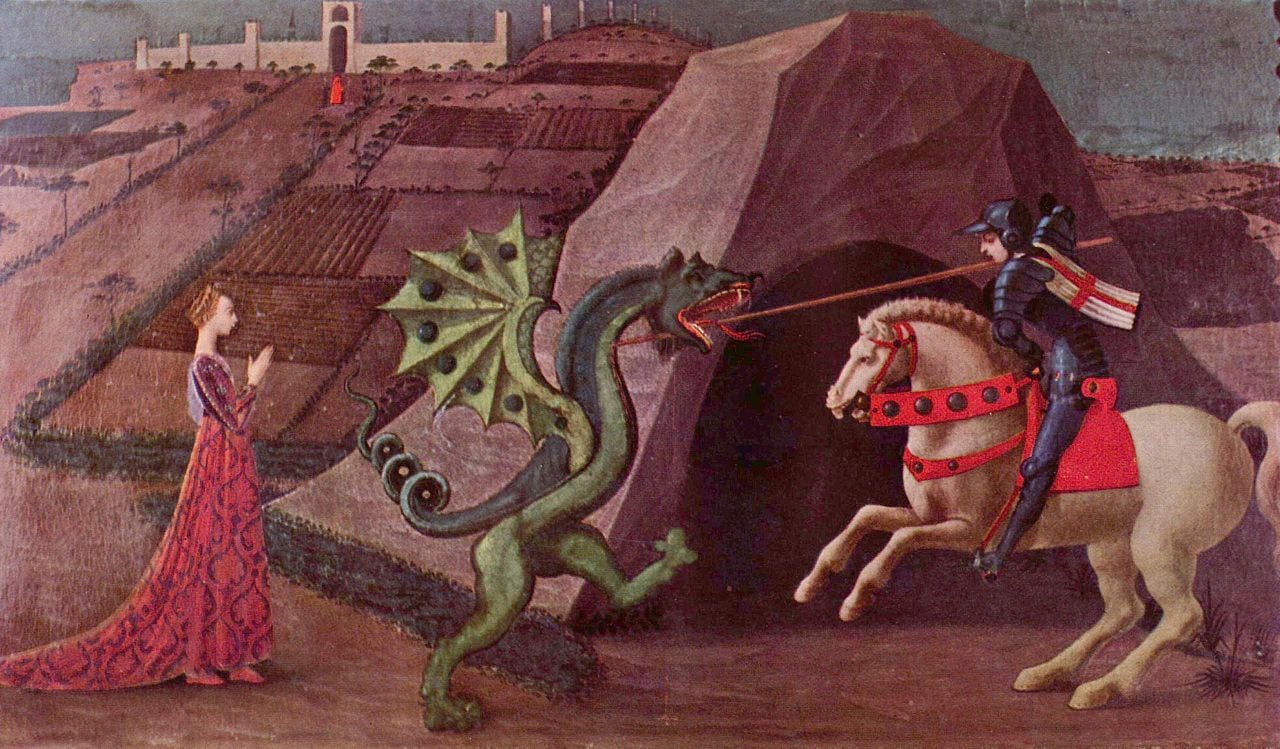Preparing for a concert in my usual fashion, I’ve been immersing myself in Josh Garrels’ new album, “Home.” The concert, as expected, was amazing, but it is one of the songs that he didn’t play that has captured my imagination. It’s the song “Heavens Knife,” and it’s about Adam and Eve. For a long time now, the Oh Hellos “Like the Dawn” (also about Adam and Eve) has been one of my favorites, so when I discovered “Heavens Knife,” I couldn’t help but compare them. On the surface, the songs are very similar—both enter into Adam’s joy in encountering Eve, crying out: bone of my bone, flesh of my flesh, at last! Both are very sweet, and frankly, very romantic. But, there is something about Garrels’ song that makes it shine more brightly.
Augustine scholar by day, music lover by night, I set to thinking more about these songs in light of what Augustine says about Adam and Eve. Augustine isn’t too popular on this front—long story—but his understanding of love, sin, and redemption explains a lot about why these songs, especially “Heavens Knife,” feel different than your average love song.
In book 14 of the City of God, Augustine spends a number of pages trying to reconstruct what spousal love must have been like before the Fall. While some criticize him for sapping pre-lapsarian love of emotion, what I find is a beautiful image of transparent love—love without fear or guile. In the Garden, Adam and Eve stand before one another, naked and without shame. Neither is objectified or dominated. Both love and are loved. They are transparent and known. They are free to give of themselves fully.
True, Augustine does say that Adam, in loving Eve, would not have been moved by mere emotions but by the authority of the consent of his will; but what he means is that Adam was not fragmented like we are. In short, his head and his heart were wholly aligned. Augustine is not giving us a picture of love without feeling, but love without lust.
Still, it is not strange that people criticize Augustine—it is hard to imagine ‘real’ love without the turbulent emotions of a Romeo or a Juliet. We only end up imagining Charlotte Lucas with her Mr. Collins. This is why I like these two songs so much—they really are love songs. They remind us that lust—the objectification of the other whether as an idol or a toy—does not make love love. Instead, they call us back to love, capturing what one Notre Dame professor has called “Spousal Vision”—the ability to truly see the beloved. Liltingly, Josh Garrels sings of his own wife:
Like the first man I was cut so deep by heaven’s knife / When I awoke from my sleep Oh my Lord, she’s beautiful Walking up to me Oh she’s wonderful, standing next to me / Oh she’s all All that I can see, yeah / She’s beautiful, she’s a part of me She’s my wife.
Wildly and energetically, the Oh Hellos sing in the voice of Adam:
You were the brightest shade of sun I had ever seen / Your skin was gilded with the gold of the richest kings / and like the dawn you woke the world inside of me / You were the brightest shade of sun when I saw you
Both gaze as lover upon the beloved and it is beautiful.
But, here is where the songs diverge. As soon as he Oh Hellos have done their work of drawing us into Adam’s rapturous vision of Eve, the pace slows, the volume falls, and they whisper the words that change everything: “You will surely be the death of me, but how could I have known?” This, if we are making an Augustinian interpretation, is nothing other than the voice of the fallen Adam who blames Eve for their crime. With these words we are shaken out of the daydream. We left wondering how to get back. Perhaps this is fitting: “Like the Dawn” comes at the beginning of an album that arcs from Creation to Redemption, and the Fall did happen, whether we like it or not.
Still, “Heavens Knife” is something else. Over and against the Old Adam, whose final words were, “It was the Woman” (and hers were no better), Garrels begins his song with a promise: “Take my hand, I won’t let go.” This song is, from its beginning, truly spousal. Where the Oh Hellos song declines, Garrels’ song soars, flowering into the prayer of the refrain: “Oh my Lord, she’s beautiful, She’s a part of me, She’s my wife.” Thus, while the song starts out as if it were just the words of a lover to his beloved, it soon becomes clear that “Heavens Knife” inextricably intertwines divine and human loves to usher forth new loves and new persons (see the last song on the album, “Benediction”). Even the promise he begins with flows out of the belief that his wife is given to him particularly by God: “all my life, I walked alone. To you, my heart, my home.” There is providence at work in Garrels’ life and loves, and he knows it.
This, in fact, is precisely what sets “Heavens Knife” apart from “Like the Dawn.” Garrels’ song is not just a recounting of the story of Adam and Eve. Garrels is not just going back to the garden because the Oh Hellos are right—we cannot get back there. The Genesis story ended in death. In “Like the Dawn,” Adam’s praise for Eve, beautiful as it is, never bubbles forth into praise for God. “Heavens Knife”, on the other hand, is infused with God’s love. This is because Garrels sings in and through the New Adam—the One who has loved us first. This is why he can sing: “I lay down my life for thee, in love we are free.” As the beloved of the Bridegroom, Garrels learns love anew. This is a song about love restored.
***
Eileen A. Bobs studies Augustine’s political thought and in her spare time enjoys riding her bicycle, analyzing music and film and making meals with friends.














